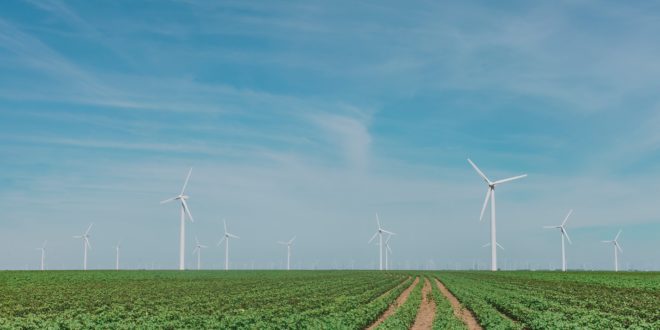The relationship between agriculture and climate change is problematic, to say the least, and is putting food safety at risk. Climate change is felt in the form of droughts, wildfires, tornadoes and other extreme weather events. It’s more urgent than ever for farmers to take action.
Some have already taken the lead in adopting sustainable practices to avoid the effects of climate change. From investing in new technology to modernizing current practices, there’s plenty you can do to build resilience to climate change on your farm.
Invest in Renewables
Investing in renewable energy is the first step toward a lifestyle suitable to withstanding climate change. Some farmers already enjoy the benefits of renewables by growing corn to make ethanol, a cheap way to power vehicles. But new options are available each day for energy sources that can be harvested forever.
The most common renewable energy sources used on farms include:
- Biomass
- Wind Turbines
- Solar Panels
- Geothermal Pump
The option that works best for you will depend on climate, the availability of renewable resources near you and the current energy market.
Cut Water Usage
Water is essential for life. And with 70% of the world’s freshwater consumed by agriculture, it’s more crucial than ever to conserve. Many farmers are upgrading their equipment for more efficient irrigation systems.
There are many types of irrigation systems, with the most common being:
- Surface Irrigation
- Drip Irrigation
- Localized Irrigation
- Sprinkler Irrigation
Surface irrigation is popular because it requires no pump, utilizing gravity to distribute water to crops. Drip irrigation, on the other hand, uses tubing to deliver drops of water directly to the roots of each plant.
Improve Soil Health
Soil is everything when it comes to sustainability. It’s what provides flavor and nutrition to the crops we eat. But it’s a major contributor to climate change. Soils contain up to three times more carbon than the atmosphere. When soil degrades, that carbon is released into the air. Through sustainable practices, farmers increase the carbon content of their soil, which reduces emissions and boosts soil health.
Soil conversation methods to reduce degradation include:
- Contour planting
- Terracing
- No-Till Farming
- Crop Residue
All of these practices equate to healthier soil able to aid growth, better hold in moisture and avoid the effects of climate change.
Reduce Methane Emissions
While carbon dioxide is a huge contributor to global warming, methane is about 30 times more potent as a heat-trapping gas. Methane is produced by ruminant livestock who contain a fore-stomach — rumen — which contains microbes that produce methane as a by-product of digestion.
Ruminant livestock includes common farm animals such as:
Farmers are tackling the issue with feed additives and supplements designed to inhibit methane-producing microorganisms and reduce methane emissions. Additives, which can be synthetic chemicals or natural treatments, are added to the diet with feeds like grain, hay or silage.
Practice Agroecology
Our current industrial practices lead to weather anomalies like soaring temperatures and extreme moisture, which can negatively affect livestock like cattle, who are particularly sensitive to a high dew point. Agroecology is an approach to farming that centers on making the best use of what nature provides without damaging resources. It’s a commitment to more sustainable practices with fewer inputs required.
Farms who incorporate agroecological practices see benefits including:
- Reduced Expenses
- Better Pest Management
- Healthier Crops
- Greater Yield
Those who adopt this farming approach are more resilient to climate change and the various side-effects.
How to Avoid the Effects of Climate Change
We’re already seeing the effects of climate change in the form of unusual weather. Intense heat waves, droughts and shifting seasons. Take action now to create a more resilient farm able to withstand the changes ahead.
Leaders in the agricultural industry have already taken the first steps in adopting sustainable practices like investing in renewable energy and installing no- or low-energy irrigation systems. Some farmers have even taken on new approaches to farming altogether, such as agroecology, which focuses on getting the most out of our natural resources. Not only do these sustainable solutions benefit the environment, but they can also lead to healthier crops and increased savings.

Green Jobs
How to Apply for a Green Job With the demand for green jobs skyrocketing so far in 2017, giving yourself a unique edge can be difficult—yet absolutely necessary—in order for you to become a proud worker for Mother Earth. Follow these steps to successfully claim your next environmentally friendly employment opportunity. 1. Resume: Make sure … Continue reading..



